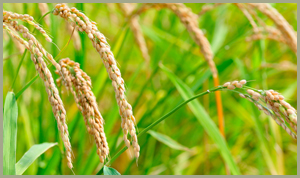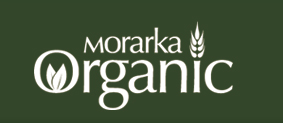-
-
|
World over the concept of organic food has come about, due to demands from consumers for food without contamination. This essentially means that on the farm synthetic and chemical inputs should not be used for qualifying as an organic produce. In response to consumer demands, many countries have enacted ?laws? to regulate organic food production, handling and processing. These laws are commonly known as ?Organic Standards?.In case of organic certification, as compared to any |
|
|
 |
| other quality certification which is entirely based on ‘product testing’ the organic certification is entirely based on ‘process verification’. To understand how they ensure the authenticity of organic claims, it follows a prescribes procedure as follows: |
|
| • |
Organic Standards as laws have provisions for appointment of certification agencies. These agencies operate as independent third party verification. They are responsible for ensuring compliances with the criteria prescribed for organic production, handling and processing. |
| |
| |
|
| • |
Every producer, adopting to be an organic producer, first of all registers his/her production unit–farm, with any one of the accredited certification agency. |
| |
| |
|
| • |
A producer once registered, also signs a declaration about his/her commitment to follow Organic Standards.These standards could be any one type or more such as INDIA-NPOP, US-NOP, EU-2092/2091, etc. |
| |
| |
|
| • |
The producer while following Organic Standards also maintains complete records of all the activities and practices followed for production at the farm unit. |
| |
| |
|
| • |
The certification agency conducts regular, periodical and surprise audits to verify the compliance with the prescribed Organic Standards. A farmer-producer found to be in-compliance with the Organic Standards is issued a Certificate. This certificate authorizes the producer to put a stamp as a mark of compliance with the relevant laws applicable for organic production, processing and handling. |
| |
| |
|
| This certification mark on any product is a complete guarantee for the organic quality of a product. Presently the majority of the world trade for organic produce is in compliance with the above certification procedure. |
| |
|
The organic value chain begins with the farmer who takes up organic cultivation. While in another section on this site, we have attempted to explain the most suitable candidate farmer for organic methods of production, here we would like to also describe the process of enrollment, technology transfer, record maintenance, inspections etc that ensures highest levels of guarantee for the organic claim made by Morarka Organic. |
|
|
 |
| |
| Normally, everyone has an image of a farmer, which is entirely based on their own perceptions. However, most of the persons are not able to create an image of an Organic Food Producer. At Morarka Organic, based on its experiences so far, we can easily profile the organic farmer. |
|
|
| • |
A farmer becomes an organic food producer by choice. |
| |
|
| • |
A farmer who believes that Mother Earth and Nature can produce enough for everyone accepts the organic philosophy. |
| |
| |
|
| • |
A farmer who is willing to work hard to produce inputs at the farm itself (rather than buying them for cash from outside) adopts organic practices. |
| |
|
| |
|
| • |
A farmer for whom small reductions in yield and output are better than robbing the earth of its capacity to produce food on sustainable basis. |
| |
| |
|
| • |
A farmer who is willing to adopt a prescribed procedure for maintaining complete records of his farm activities. |
| |
| |
|
| • |
A farmer who registers himself with an external certification agency to verify his farm operations and their compliances with organic standards. |
| |
| |
|
| • |
A farmer who even pays for registration, record maintenance, verification and certification so that a consumer can get food without chemicals. |
| |
| |
|
| • |
A farmer who adopts most modern technologies and practices, but of a different kind such as; Hygiene and Sanitation Standards, Food Safety Standards, Environmental Sustainability Standards, Social Responsibility Standards, etc. |
| |
| |
| A small farmer, who is doing so much for the quality conscious consumer, is a certified organic farmer at Morarka Organic. |
|
| |
All the Morarka Organic Products are currently certified as per |
| |
|
| • |
USDA NOP by Lacon Quality Certification. |
| |
|
| |
|
| • |
JAS by CERES of GERMANY. |
| |
|
| • |
Standards for organic in Switzerland By BIO - SUISSE |
| |
|
| • |
INDIAN NOP by Lacon Quality Certification. |
| |
In addition the Processing & Value addition is also in compliance with Food Safety Management System popularly known as ISO 22000:2005.
(This covers ISO 9000 & HACCP).
For trade and marketing in UK, the Morarka Organic range of Spices is also certified for VALID IT By BODYCOTE in UK.
Morarka Organic is also in the process of acquiring acceptance under Marks & Spencer, UK through document audit for Allergens in Spices. |
|
| |
|
|
|
| |
|
|
The organic movement has moved beyond its niche to be accepted and followed worldwide. This global acceptance has been all due to universally recognized and accepted organic standards.
IFOAM has been in the forefront of these standards development initiatives across the world. IFOAM?s Organic Guarantee System being the first initiative anywhere in the world, unites the organic world through a common system of standards, verification and identity. The IFOAM Basic Standards provide a framework for certification bodies and standard setting organizations worldwide to develop their own certification standards and cannot be used for certification on their own. Together the IFOAM Basic standards for Organic Production and Processing (IBS) and the IFOAM Accreditation Criteria for Bodies Certifying Organic Production and Processing (IAC) constitute the IFOAM Norms. The IFOAM seal is a market oriented mark of compliance. The mark ensures wholesalers, retailers and consumers that a product and its producers are organically certified within the IFOAM Organic Guarantee System. However this being a private initiative, i.e., outside the laws of the government, could not become well recognized mark among the consumers in the world.
The second most ambitious initiative has been Codex Alimentarius Guidelines for organic. The Codex Alimentarius commission implements the FAO/WHO Food Standards Program, the purpose of which is to protect the heath of consumers and ensure fair trade practices. The Codex Alimentarius is a collection of internationally adopted food standards. It also includes provisions of an advisory nature in the form of codes of practice, guidelines and other measures. It is intended to guide and promote the elaboration and establishment of definitions and requirement for foods, to assist their harmonization and in doing so, facilitate international trade. These guidelines define organic production and labelling in a manner that protects the consumer from products that falsely claim to be organic. In India, CFTRI Mysore has been designated as nodal Codex Food Laboratory. This is a joint project of the Ministry of Food Processing Industries, Government of India and CSIR. However even these Standards have also not been able to gain the consumer confidence, as compared to Country Standards.
As the sector started to grow bigger, in time many Governments across the world too formulated their own standards, which were in sync with each other. Some of the most prominent among them are;
National Organic Program USA: In the past organic farming practices were haphazardly regulated by a wide variety of governmental and private certification programs. To bring about uniformity, the Congress of the United States passed the Organic Food Production Act in 1990. The Act mandates the United States Department of Agriculture (USDA) to establish national standards governing the methods of organic production. The final rules which were effective from February 2001 established the National Organic Program (NOP) as an arm of the USDA. This program has been developed to facilitate domestic and international marketing of fresh and processed organic food, and assure consumers that such products meet consistent, uniform standards. The regulations among other things prohibit the use of genetically modified ingredients, irradiation to decontaminate products, and sewage sludge as fertilizers for any food sold as an organic product. As of today the Organic Seal of NOP is one of the most recognized mark among the consumers, not only in the US but also across the world. All Morarka Products are also certified as per USDA ? NOP Standards.
In Europe, initially most organic trade was based on Private Standards. There were many private agencies offering organic certification services, mostly based on IFOAM Standards. Their marks/logos were promoted and recognized by the consumers. However, when the trade was better regulated, European Commission came forward to formulate uniform standards applicable to all the countries in Europe. These were known as EU 2091/92 standards for organic and a new Seal/Logo was extensively promoted and recognized. The EU standards achieved equivalence with US standards as well as with the ISO 65 norms. In some countries in Europe, like in UK, even today they have better recognized private standards by ?Soil Association?. At Morarka Organic the organic products are certified as per EU norms as well.
In Japan the growth of organic market was also linked to the regulations introduced by the government. In Japan they were notified as JAS standards. Since at Morarka Organic only few products are being exported in to Japan, it has some of its products presently certified as per JAS standards.
In India, the Ministry of Commerce and Industry, Government of India is responsible for setting standards for export of organic produce. APEDA has been the designated agency to implement the Organic Standards. The National Programme for Organic Production was launched in March 2000. It contained Standards for organic products exports. The NPOP standards have mostly been based on provisions contained in Standards prescribed by Agencies such as IFOAM, EU regulations and Codex. The Indian NPOP Standards have also achieved equivalence with US & EU standards. All certification agencies operating in India have to be necessarily accredited, to certify as per NPOP standards, and thus all the projects and products from Morarka Organic are certified so. NPOP standards being export standards for long, from the Year 2009, the Indian NPOP standards have now also been recognized for domestic markets, after being notified under the Agmark Act, by the Ministry of Agriculture & Cooperation, Government of India. |
| |
|
|
|
read more |
| |
|
-
|
| |
|
|
World over there is a demand for better quality food. Some how all the health problems suffered by humans in some way are getting linked either to the food itself or its quality For long regulators and scientists managed quality, during its processing, packing and retailing/serving. But after 40-50 years of this kind of quality management, there is a new thinking regarding the need for quality management to go beyond, i.e., right up to cultivation itself. In a way organic philosophy meets this need, and has also been accepted as the ultimate norms for quality management.
But for other types of conventionally produced food, where the quality management rigour is not as strong as in the case of organic, the new concept of ?traceability? is being introduced as an assurance for the quality. This means every food product that is on the shelf of a retail and or food service outlet, the consumer should be able to find the source and the place where it has originated. The regulators worldwide are now working hard in association with producers to deliver this assurance. In case of organic, this assurance is inbuilt in the system of process monitoring and verification. Possibly this is also one reason why organic certification has been such an expensive affair, all these years.
At Morarka Organic, a unique system of process verification based on IT application has been developed. This system ensures complete record maintenance on an ?Online Platform? for all the producers, with up to date records of all the operations being carried out at the organic farm. Both paper records as Farm Diary, as well as electronic records are maintained through farm level supervisors. There is also a two tier verification process by the inspectors at Morarka Organic, and then there is third party verification by the Certification Agency. This imparts highest level of authenticity to the organic process verification.
The electronic records also provide complete information for all the producers, crops and lots maintained batch-wise with the click of a button on a computer. This means for every pack sold by Morarka Organic the interested consumer can get complete information about the farmer, crop season, quantity of production, batch wise quality and so on. Resulting in the true guarantee of quality desired by any consumer anywhere in the world.
|
|
|
|
|
